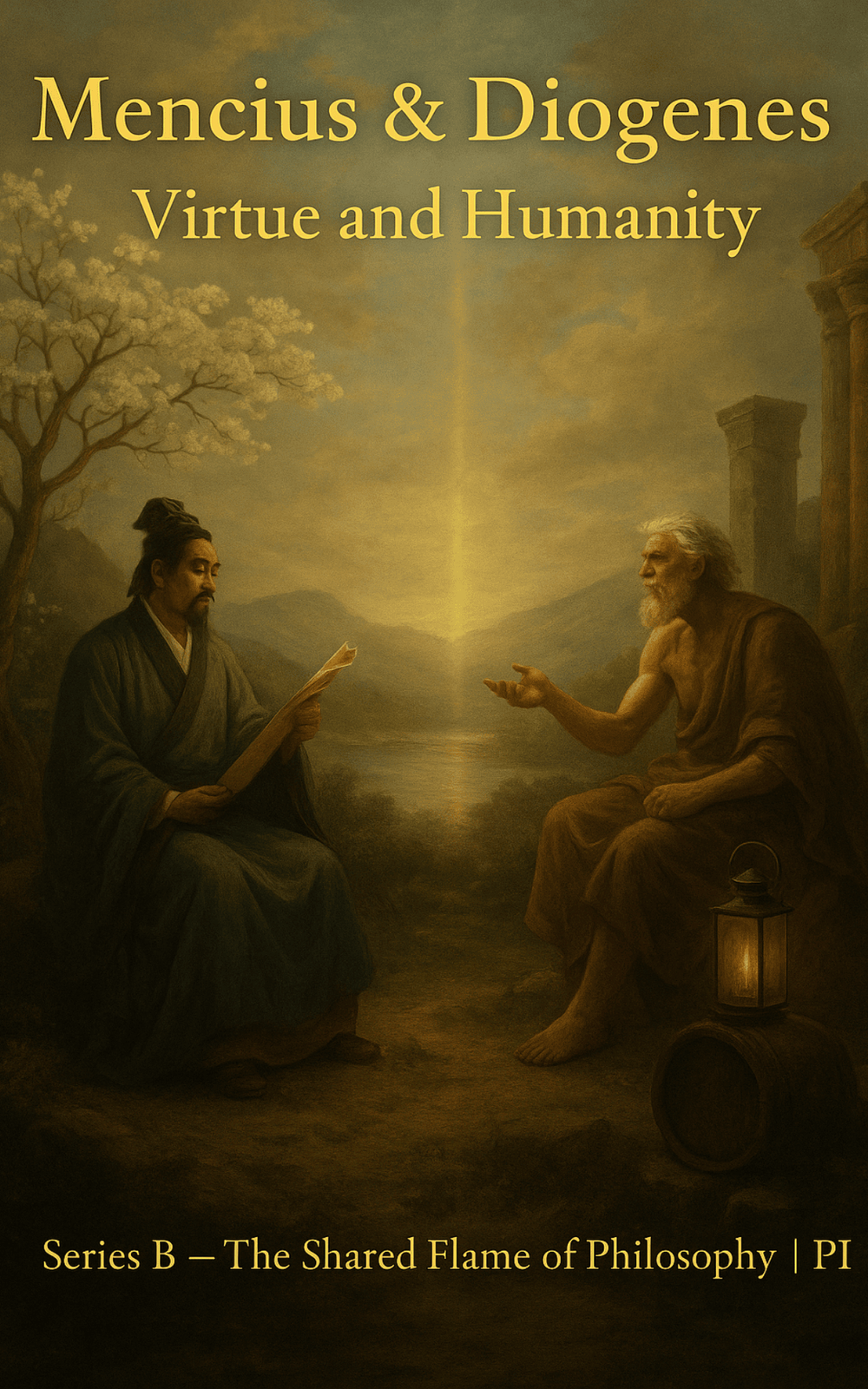


Prelude — The Pursuit of Knowledge & the Exam of Memory
What connects the pursuit of knowledge with the pursuit of equality?
In this prelude to The One Humanity Essays, Darren Palmer explores how learning evolved from curiosity to control — and how rediscovering wonder can redefine equality itself.
Blending history, philosophy, and reflection, this essay traces humanity’s journey from the first scholars who watched the stars to modern systems that measure memory instead of understanding.
The Pursuit of Knowledge — and the Exam of Memory invites readers to question how we learn, what we value, and what it means to think freely in a world built on tests.
Part of the One Humanity Essays series — works that explore how knowledge, philosophy, and equality converge across cultures and centuries.
Free to download here. Kindle edition (~$0.99 / £0.77) helps reach new readers.

Series A — The Mirror of Learning
When Virtue Became a Syllabus
When Virtue Became a Syllabus explores the world’s first moral bureaucracy — the Chinese civil-service examinations — and how a conversation about conscience became a curriculum of conformity.
From the Han dynasty to the Qing, generations of scholars believed that goodness could be measured by memory. Inside vast examination halls, men copied the Analects until wisdom itself became a form to be perfected. What began as philosophy turned into policy; what began as dialogue turned into doctrine.
Through vivid narrative and reflection, Darren Palmer traces how the pursuit of virtue became a system of control — and how its echoes still shape modern ideas of education, merit, and morality.
Part I of Series A — The Mirror of Learning in The One Humanity Essays, this work continues Palmer’s wider exploration of equality, curiosity, and the ways societies learn to value knowledge.
Free to download here. Kindle edition (~$0.99 / £0.77) helps reach new readers.

Series B — Equality Without Distinction
Mencius & Diogenes — Virtue and Humanity: A Dialogue Across Worlds
Mencius & Diogenes — Virtue and Humanity brings together two philosophers who lived worlds apart but shared the same moral questions.
In ancient China, Mencius taught that human nature is good and that virtue begins with compassion. In Greece, Diogenes lived his philosophy in defiance of hypocrisy and power. Both believed that truth and dignity arise from how we live, not what we own.
This essay explores their parallel journeys — the politics of compassion, the courage of defiance, and the light that still connects their ideas today.
Part I of Series B — The Shared Flame of Philosophy in The One Humanity Essays, this work continues Darren Palmer’s exploration of wisdom across cultures and the shared human search for meaning and equality.
Free to download here. Kindle edition (coming soon) helps reach new readers.

